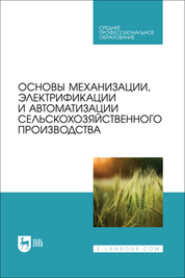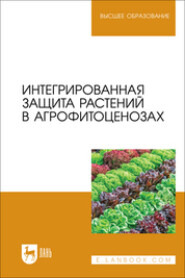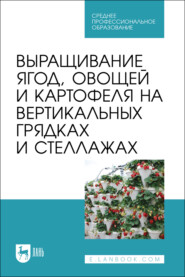По всем вопросам обращайтесь на: info@litportal.ru
(©) 2003-2024.
✖
Short-Stories
Настройки чтения
Размер шрифта
Высота строк
Поля
At the termination of this sentence I started, and for a moment paused; for it appeared to me (although I at once concluded that my excited fancy had deceived me) – it appeared to me that, from some very remote portion of the mansion, there came, indistinctly, to my ears what might have been, in its exact similarity of character, the echo (but a stifled and dull one certainly) of the very cracking and ripping sound which Sir Launcelot had so particularly described. It was, beyond doubt, the coincidence alone which had arrested my attention; for, amid the rattling of the sashes of the casements, and the ordinary commingled noises of the still increasing storm, the sound, in itself, had nothing, surely, which should have interested or disturbed, me. I continued the story: —
"But the good champion Ethelred, now entering within the door, was sore enraged and amazed to perceive no signal of the maliceful hermit; but, in the stead thereof, a dragon of a scaly and prodigious demeanor, and of a fiery tongue, which sate in guard before a palace of gold, with a floor of silver; and upon the wall there hung a shield of shining brass with this legend enwritten: —
Who entereth herein, a conqueror hath been;
Who slayeth the dragon, the shield he shall win.
"And Ethelred uplifted his mace, and struck upon the head of the dragon, which fell before him, and gave up his pesty breath, with a shriek so horrid and harsh, and withal so piercing, that Ethelred had fain[61 - 92:25 had fain. In the sense of was glad.] to close his ears with his hands against the dreadful noise of it, the like whereof was never before heard."
Here again I paused abruptly, and now with a feeling of wild amazement – for there could be no doubt whatever that, in this instance, I did actually hear (although from what direction it proceeded I found it impossible to say) a low and apparently distant, but harsh, protracted, and most unusual screaming or grating sound – the exact counterpart of what my fancy had already conjured up for the dragon's unnatural shriek as described by the romancer.
Oppressed, as I certainly was, upon the occurrence of this second and most extraordinary coincidence, by a thousand conflicting sensations, in which wonder and extreme terror were predominant, I still retained sufficient presence of mind to avoid exciting, by any observation, the sensitive nervousness of my companion. I was by no means certain that he had noticed the sounds in question; although, assuredly, a strange alteration had, during the last few minutes, taken place in his demeanor. From a position fronting my own, he had gradually brought round his chair, so as to sit with his face to the door of the chamber; and thus I could but partially perceive his features, although I saw that his lips trembled as if he were murmuring inaudibly. His head had dropped upon his breast – yet I knew that he was not asleep, from the wide and rigid opening of the eye as I caught a glance of it in profile. The motion of his body, too, was at variance with this idea – for he rocked from side to side with a gentle yet constant and uniform sway. Having rapidly taken notice of all this, I resumed the narrative of Sir Launcelot, which thus proceeded: —
"And now the champion, having escaped from the terrible fury of the dragon, bethinking himself of the brazen shield, and of the breaking up of the enchantment which was upon it, removed the carcass from out of the way before him, and approached valorously over the silver pavement of the castle to where the shield was upon the wall; which in sooth tarried not for his full coming, but fell down at his feet upon the silver floor, with a mighty, great and terrible ringing sound."
No sooner had these syllables passed my lips, than – as if a shield of brass had indeed, at the moment, fallen heavily upon a floor of silver – I became aware of a distinct, hollow, metallic and clangorous, yet apparently muffled reverberation. Completely unnerved, I leaped to my feet; but the measured rocking movement of Usher was undisturbed. I rushed to the chair in which he sat. His eyes were bent fixedly before him, and throughout his whole countenance there reigned a stony rigidity. But, as I placed my hand upon his shoulder, there came a strong shudder over his whole person; a sickly smile quivered about his lips; and I saw that he spoke in a low, hurried, and gibbering murmur, as if unconscious of my presence. Bending closely over him, I at length drank in the hideous import of his words.
"Not hear it? – yes, I hear it, and have heard it. Long – long – long – many minutes, many hours, many days, have I heard it – yet I dared not – oh, pity me, miserable wretch that I am! – I dared not – I dared not speak! We have put her living in the tomb! Said I not that my senses were acute? I now tell you that I heard her first feeble movements in the hollow coffin. I heard them – many, many days ago – yet I dared not —I dared not speak! And now – to-night – Ethelred – ha! ha! – the breaking of the hermit's door, and the death-cry of the dragon, and the clangor of the shield! – say, rather, the rending of her coffin, and the grating of the iron hinges of her prison, and her struggles within the coppered archway of the vault! Oh, whither shall I fly? Will she not be here anon? Is she not hurrying to upbraid me for my haste? Have I not heard her footstep on the stair? Do I not distinguish that heavy and horrible beating of her heart? Madman!" – here he sprang furiously to his feet, and shrieked out his syllables, as if in the effort he were giving up his soul – "Madman! I tell you that she now stands without the door!"
As if in the superhuman energy of his utterance there had been found the potency of a spell – the huge antique panels to which the speaker pointed threw slowly back, upon the instant, their ponderous and ebony jaws. It was the work of the rushing gust – but then without those doors there did stand the lofty and enshrouded figure of the lady Madeline of Usher. There was blood upon her white robes, and the evidence of some bitter struggle upon every portion of her emaciated frame. For a moment she remained trembling and reeling to and fro upon the threshold – then, with a low, moaning cry, fell heavily inward upon the person of her brother, and in her violent and now final death-agonies, bore him to the floor a corpse, and a victim to the terrors he had anticipated.
From that chamber, and from that mansion, I fled aghast. The storm was still abroad in all its wrath as I found myself crossing the old causeway. Suddenly there shot along the path a wild light, and I turned to see whence a gleam so unusual could have issued; for the vast house and its shadows were alone behind me. The radiance was that of the full, setting, and blood-red moon, which now shone vividly through that once barely discernible fissure, of which I have before spoken as extending from the roof of the building, in a zigzag direction, to the base. While I gazed, this fissure rapidly widened – there came a fierce breath of the whirlwind – the entire orb of the satellite burst at once upon my sight – my brain reeled as I saw the mighty walls rushing asunder – there was a long tumultuous shouting sound like the voice of a thousand waters – and the deep and dank tarn at my feet closed sullenly and silently over the fragments of the "House of Usher."
BIOGRAPHY
Edgar Allan Poe was born in Boston, January 19, 1809. His parents, who were actors, died before their son was three years old. Mr. Allan, a wealthy Richmond merchant, adopted the child and gave him a splendid home. How scantily Poe appreciated and improved the advantages of this kindness he himself confesses in a letter to Lowell in 1844. "I have been too deeply conscious of the mutability and evanescence of temporal things to give any continuous effort to anything – to be consistent in anything. My life has been whim– impulse – passion – a longing for solitude – a scorn of all things present in an earnest desire for the future." He was a dreamer who had a fair chance to be happy, but he flung the opportunity away. He was a spoiled child who remained ignorant of life even unto his death.
He entered the University of Virginia in 1826, where his conduct was so bad that he was, after a year, removed from the college. This action broke the strong friendship Mr. Allan had long held for his adopted son. Poe, urged by a hot temper or possibly by a remorse for his actions, ran away and enlisted in the regular army. In 1829 Mr. Allan became partially reconciled with Poe, and again came to his assistance. In 1830 Poe entered West Point, but was there only a short time when he was dismissed for wilful neglect of duty.
Following this dismissal Poe went to Baltimore, where he did hack work for newspapers. This was the beginning of a process of writing that has brought him high rank and an imperishable honor. His narrative is clear, compressed, and powerful, and throughout his writings choice symbols abound. He was fond of themes of death, insanity, and terror. The wonder of it all is that this struggling, poverty-stricken craftsman, irregular in his habits of living, using only negative life and shadowy abstractions, should, from out his disordered fancies, weave stories and poems of such undying beauty and force.
Poe married his thirteen-year-old cousin, Virginia Clemm. Her health was always delicate and her death confirmed Poe's tendency toward dissipation. His life was filled with dire poverty and a hard struggle for a livelihood. His home relations were happy. The last years of his life were spent at Fordham, a suburb of New York. He died in a Baltimore hospital, October 7, 1849.
BIOGRAPHICAL REFERENCES
Introduction to American Literature, Brander Matthews.
Studies in American Literature, Charles Noble.
Introduction to American Literature, F.V.N. Painter.
Life of Poe, Richard Henry Stoddard.
Edgar Allan Poe, G.E. Woodberry.
Makers of English Fiction, W.J. Dawson.
"Art of Poe, Independent, 66: 157-8. January 21, 1909.
"Dual Personality," Current Literature, 43: 287-8.
CRITICISMS
Some critics have maintained that Poe is our only original genius in
American Literature. Lowell wrote in his Fable for Critics: —
"There comes Poe with his raven, like Barnaby Rudge, Three-fifths of him genius, and two-fifths sheer fudge."
Whatever judgments the various critics may give of Poe and his writings, they must all agree that he is original. He is a clever writer in a limited field. His writings have a glow and burnish that have their origin in his fondness for sensations, color, and vividness of details. He loves mystery and terror, – not the fancies and fears of a child, but overwrought nerves. His material is unreal, and remote from ordinary life. His characters are abnormal, and the world they live in is exceptional. He is inventive, original in arranging his material, and shallow but keen in his thinking.
He believed that art and life have little in common, and in his writings seemed to be unmoved by friendship, loyalty, patriotism, courage, self-sacrifice or any of the great positive attributes of life that make living worth while. His writings lack the human touch, tenderness, and the buoyancy of sympathy. He is an artist who does his work with a clear-cut, hard finish. His choice of words, vivid pictures, and clearly evolved plots make his writings excellent studies for any one who wishes to develop literary appreciation and to learn to write.
GENERAL REFERENCES
Studies and Appreciations, L.E. Gates.
American Prose Masters, William Crary Brownwell.
The Short Story in English, Henry Seidel Canby.
Edgar Poe, R.H. Button.
Inquiries and Opinions, Brander Matthews.
"Life of Edgar Allan Poe," Nation, 89: 100-110.
"Weird Genius," Cosmopolitan, 46:243-252.
COLLATERAL READINGS
Ligeia, Edgar Allan Poe.
The Cask of Amontillado, Edgar Allan Poe.
The Assignation, Edgar Allan Poe.
Ms. Pound in Bottle, Edgar Allan Poe.
The Black Cat, Edgar Allan Poe.
Berenice, Edgar Allan Poe.
The Tell-Tale Heart, Edgar Allan Poe.
The White Old Maid, Nathaniel Hawthorne.
Moonlight ("Odd Number"), Guy de Maupassant.
"But the good champion Ethelred, now entering within the door, was sore enraged and amazed to perceive no signal of the maliceful hermit; but, in the stead thereof, a dragon of a scaly and prodigious demeanor, and of a fiery tongue, which sate in guard before a palace of gold, with a floor of silver; and upon the wall there hung a shield of shining brass with this legend enwritten: —
Who entereth herein, a conqueror hath been;
Who slayeth the dragon, the shield he shall win.
"And Ethelred uplifted his mace, and struck upon the head of the dragon, which fell before him, and gave up his pesty breath, with a shriek so horrid and harsh, and withal so piercing, that Ethelred had fain[61 - 92:25 had fain. In the sense of was glad.] to close his ears with his hands against the dreadful noise of it, the like whereof was never before heard."
Here again I paused abruptly, and now with a feeling of wild amazement – for there could be no doubt whatever that, in this instance, I did actually hear (although from what direction it proceeded I found it impossible to say) a low and apparently distant, but harsh, protracted, and most unusual screaming or grating sound – the exact counterpart of what my fancy had already conjured up for the dragon's unnatural shriek as described by the romancer.
Oppressed, as I certainly was, upon the occurrence of this second and most extraordinary coincidence, by a thousand conflicting sensations, in which wonder and extreme terror were predominant, I still retained sufficient presence of mind to avoid exciting, by any observation, the sensitive nervousness of my companion. I was by no means certain that he had noticed the sounds in question; although, assuredly, a strange alteration had, during the last few minutes, taken place in his demeanor. From a position fronting my own, he had gradually brought round his chair, so as to sit with his face to the door of the chamber; and thus I could but partially perceive his features, although I saw that his lips trembled as if he were murmuring inaudibly. His head had dropped upon his breast – yet I knew that he was not asleep, from the wide and rigid opening of the eye as I caught a glance of it in profile. The motion of his body, too, was at variance with this idea – for he rocked from side to side with a gentle yet constant and uniform sway. Having rapidly taken notice of all this, I resumed the narrative of Sir Launcelot, which thus proceeded: —
"And now the champion, having escaped from the terrible fury of the dragon, bethinking himself of the brazen shield, and of the breaking up of the enchantment which was upon it, removed the carcass from out of the way before him, and approached valorously over the silver pavement of the castle to where the shield was upon the wall; which in sooth tarried not for his full coming, but fell down at his feet upon the silver floor, with a mighty, great and terrible ringing sound."
No sooner had these syllables passed my lips, than – as if a shield of brass had indeed, at the moment, fallen heavily upon a floor of silver – I became aware of a distinct, hollow, metallic and clangorous, yet apparently muffled reverberation. Completely unnerved, I leaped to my feet; but the measured rocking movement of Usher was undisturbed. I rushed to the chair in which he sat. His eyes were bent fixedly before him, and throughout his whole countenance there reigned a stony rigidity. But, as I placed my hand upon his shoulder, there came a strong shudder over his whole person; a sickly smile quivered about his lips; and I saw that he spoke in a low, hurried, and gibbering murmur, as if unconscious of my presence. Bending closely over him, I at length drank in the hideous import of his words.
"Not hear it? – yes, I hear it, and have heard it. Long – long – long – many minutes, many hours, many days, have I heard it – yet I dared not – oh, pity me, miserable wretch that I am! – I dared not – I dared not speak! We have put her living in the tomb! Said I not that my senses were acute? I now tell you that I heard her first feeble movements in the hollow coffin. I heard them – many, many days ago – yet I dared not —I dared not speak! And now – to-night – Ethelred – ha! ha! – the breaking of the hermit's door, and the death-cry of the dragon, and the clangor of the shield! – say, rather, the rending of her coffin, and the grating of the iron hinges of her prison, and her struggles within the coppered archway of the vault! Oh, whither shall I fly? Will she not be here anon? Is she not hurrying to upbraid me for my haste? Have I not heard her footstep on the stair? Do I not distinguish that heavy and horrible beating of her heart? Madman!" – here he sprang furiously to his feet, and shrieked out his syllables, as if in the effort he were giving up his soul – "Madman! I tell you that she now stands without the door!"
As if in the superhuman energy of his utterance there had been found the potency of a spell – the huge antique panels to which the speaker pointed threw slowly back, upon the instant, their ponderous and ebony jaws. It was the work of the rushing gust – but then without those doors there did stand the lofty and enshrouded figure of the lady Madeline of Usher. There was blood upon her white robes, and the evidence of some bitter struggle upon every portion of her emaciated frame. For a moment she remained trembling and reeling to and fro upon the threshold – then, with a low, moaning cry, fell heavily inward upon the person of her brother, and in her violent and now final death-agonies, bore him to the floor a corpse, and a victim to the terrors he had anticipated.
From that chamber, and from that mansion, I fled aghast. The storm was still abroad in all its wrath as I found myself crossing the old causeway. Suddenly there shot along the path a wild light, and I turned to see whence a gleam so unusual could have issued; for the vast house and its shadows were alone behind me. The radiance was that of the full, setting, and blood-red moon, which now shone vividly through that once barely discernible fissure, of which I have before spoken as extending from the roof of the building, in a zigzag direction, to the base. While I gazed, this fissure rapidly widened – there came a fierce breath of the whirlwind – the entire orb of the satellite burst at once upon my sight – my brain reeled as I saw the mighty walls rushing asunder – there was a long tumultuous shouting sound like the voice of a thousand waters – and the deep and dank tarn at my feet closed sullenly and silently over the fragments of the "House of Usher."
BIOGRAPHY
Edgar Allan Poe was born in Boston, January 19, 1809. His parents, who were actors, died before their son was three years old. Mr. Allan, a wealthy Richmond merchant, adopted the child and gave him a splendid home. How scantily Poe appreciated and improved the advantages of this kindness he himself confesses in a letter to Lowell in 1844. "I have been too deeply conscious of the mutability and evanescence of temporal things to give any continuous effort to anything – to be consistent in anything. My life has been whim– impulse – passion – a longing for solitude – a scorn of all things present in an earnest desire for the future." He was a dreamer who had a fair chance to be happy, but he flung the opportunity away. He was a spoiled child who remained ignorant of life even unto his death.
He entered the University of Virginia in 1826, where his conduct was so bad that he was, after a year, removed from the college. This action broke the strong friendship Mr. Allan had long held for his adopted son. Poe, urged by a hot temper or possibly by a remorse for his actions, ran away and enlisted in the regular army. In 1829 Mr. Allan became partially reconciled with Poe, and again came to his assistance. In 1830 Poe entered West Point, but was there only a short time when he was dismissed for wilful neglect of duty.
Following this dismissal Poe went to Baltimore, where he did hack work for newspapers. This was the beginning of a process of writing that has brought him high rank and an imperishable honor. His narrative is clear, compressed, and powerful, and throughout his writings choice symbols abound. He was fond of themes of death, insanity, and terror. The wonder of it all is that this struggling, poverty-stricken craftsman, irregular in his habits of living, using only negative life and shadowy abstractions, should, from out his disordered fancies, weave stories and poems of such undying beauty and force.
Poe married his thirteen-year-old cousin, Virginia Clemm. Her health was always delicate and her death confirmed Poe's tendency toward dissipation. His life was filled with dire poverty and a hard struggle for a livelihood. His home relations were happy. The last years of his life were spent at Fordham, a suburb of New York. He died in a Baltimore hospital, October 7, 1849.
BIOGRAPHICAL REFERENCES
Introduction to American Literature, Brander Matthews.
Studies in American Literature, Charles Noble.
Introduction to American Literature, F.V.N. Painter.
Life of Poe, Richard Henry Stoddard.
Edgar Allan Poe, G.E. Woodberry.
Makers of English Fiction, W.J. Dawson.
"Art of Poe, Independent, 66: 157-8. January 21, 1909.
"Dual Personality," Current Literature, 43: 287-8.
CRITICISMS
Some critics have maintained that Poe is our only original genius in
American Literature. Lowell wrote in his Fable for Critics: —
"There comes Poe with his raven, like Barnaby Rudge, Three-fifths of him genius, and two-fifths sheer fudge."
Whatever judgments the various critics may give of Poe and his writings, they must all agree that he is original. He is a clever writer in a limited field. His writings have a glow and burnish that have their origin in his fondness for sensations, color, and vividness of details. He loves mystery and terror, – not the fancies and fears of a child, but overwrought nerves. His material is unreal, and remote from ordinary life. His characters are abnormal, and the world they live in is exceptional. He is inventive, original in arranging his material, and shallow but keen in his thinking.
He believed that art and life have little in common, and in his writings seemed to be unmoved by friendship, loyalty, patriotism, courage, self-sacrifice or any of the great positive attributes of life that make living worth while. His writings lack the human touch, tenderness, and the buoyancy of sympathy. He is an artist who does his work with a clear-cut, hard finish. His choice of words, vivid pictures, and clearly evolved plots make his writings excellent studies for any one who wishes to develop literary appreciation and to learn to write.
GENERAL REFERENCES
Studies and Appreciations, L.E. Gates.
American Prose Masters, William Crary Brownwell.
The Short Story in English, Henry Seidel Canby.
Edgar Poe, R.H. Button.
Inquiries and Opinions, Brander Matthews.
"Life of Edgar Allan Poe," Nation, 89: 100-110.
"Weird Genius," Cosmopolitan, 46:243-252.
COLLATERAL READINGS
Ligeia, Edgar Allan Poe.
The Cask of Amontillado, Edgar Allan Poe.
The Assignation, Edgar Allan Poe.
Ms. Pound in Bottle, Edgar Allan Poe.
The Black Cat, Edgar Allan Poe.
Berenice, Edgar Allan Poe.
The Tell-Tale Heart, Edgar Allan Poe.
The White Old Maid, Nathaniel Hawthorne.
Moonlight ("Odd Number"), Guy de Maupassant.

















